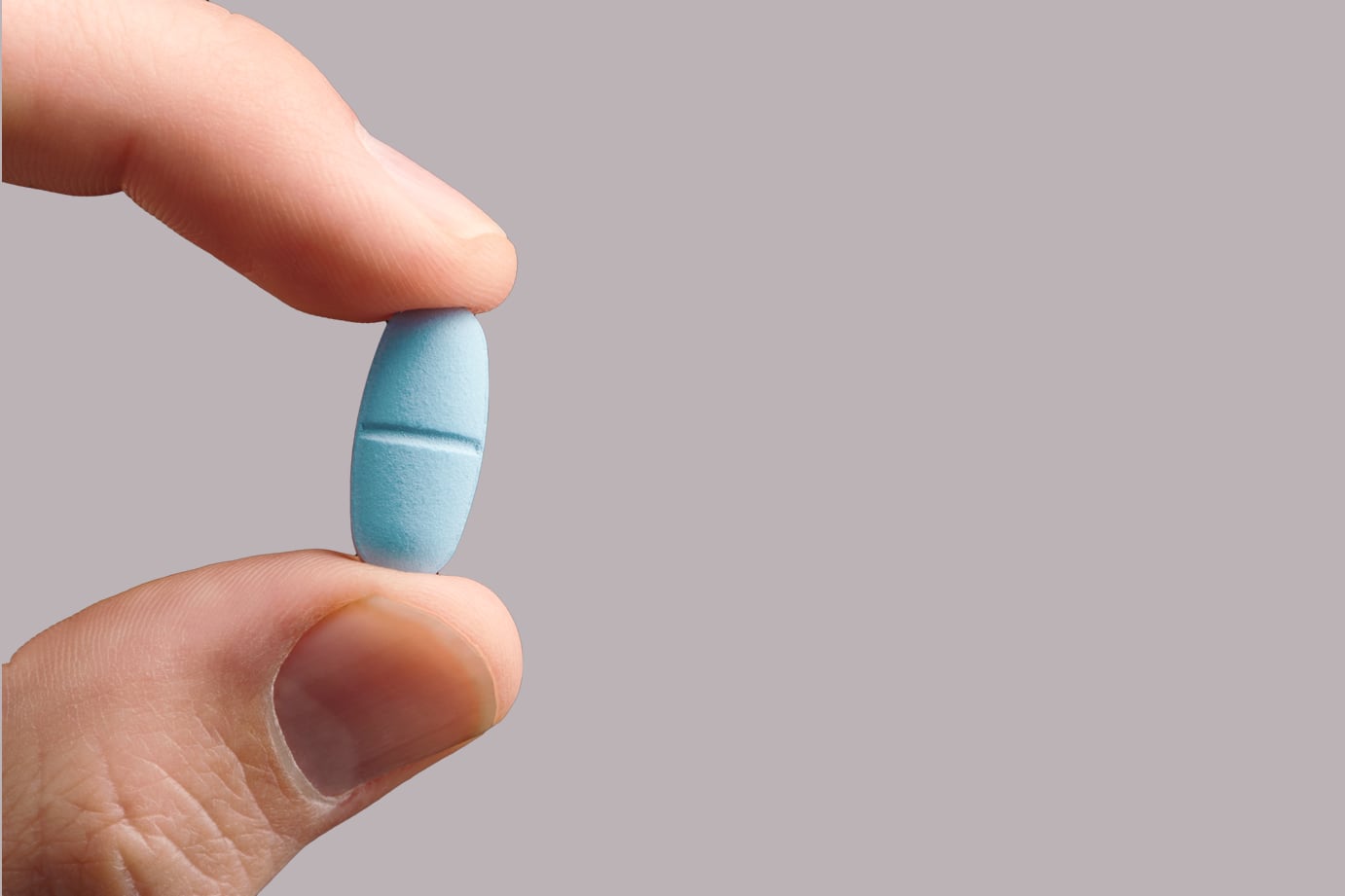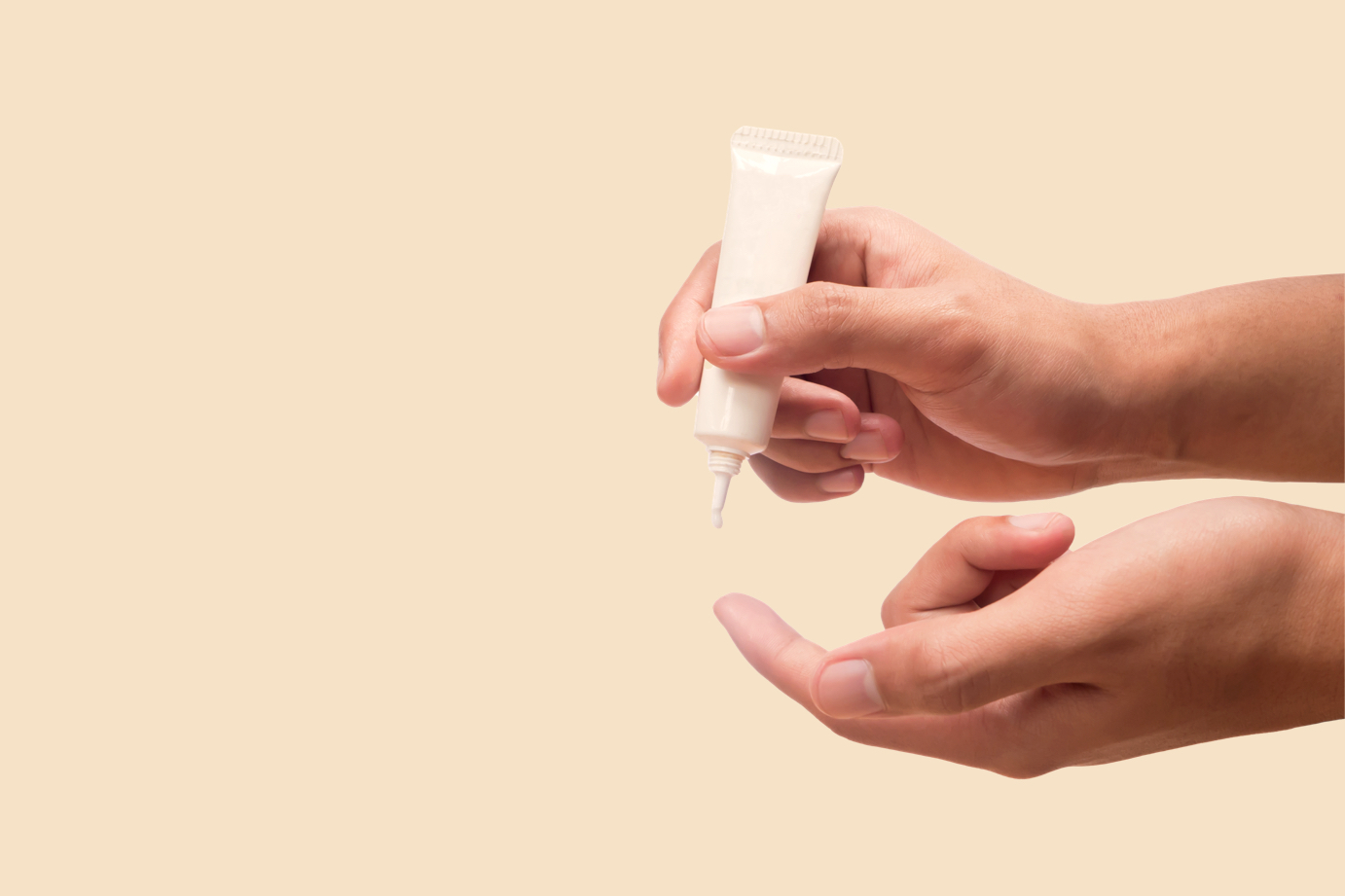Sexual Health
Mental Health

Millions of people around the world have at least one form of herpes. Here's what you need to know.
Part of our mission at Felix is to de-stigmatize health issues that people can be hesitant to talk about. As we now offer doctor prescribed treatment to people who have been diagnosed with oral or genital herpes, we want to educate our patients about this condition as well.
According to the World Health Organization:
The viral infections that cause oral and genital herpes are incredibly common and almost entirely harmless, yet people with herpes often feel deep shame around the diagnosis. They might not want to talk about it even with their doctors.
Herpes has a remarkably high prevalence, although many people don’t know they’re infected because they either have no symptoms or only have minor ones. If you have oral herpes there’s a chance you caught it from a grandparent who kissed you as a child, and you can have genital herpes even if you’ve only had sex with one person — you can even catch it from non-sexual activities like shared gym equipment.
If you’re taking treatment to control the virus, you may go years between flare-ups (you may also hear them called outbreaks). Herpes is most transmittable during those flare-ups periods of viral shedding. It can be transmitted during latent periods, too, but it’s much less likely.

If you do experience symptoms of oral herpes, they typically include small, fluid-filled blisters in and around the mouth. Your symptoms during the primary (or first) infection are usually worse than any recurrent episodes you might have in the future. In your first episode, you might also experience fever, body aches, sore throat, swollen lymph nodes, or headache. In children, these symptoms may be bad enough to require hospitalization for dehydration or pain control. This can last up to 2 weeks before going away.
After your symptoms go away the first time, the virus goes into a latent, or dormant, state in a bundle of nerve cells called the trigeminal ganglion. In 20-40% of those infected with HSV-1, the virus will come out of these cells again and reactivate. When it does, it’s called a recurrent infection and will cause cold sores, the classic small blisters around the mouth and lips.
Because your immune system has already seen the virus before, the severe, systemic symptoms that appeared during the primary infection are usually not present. About a day before the sores appear, you might experience pain, burning, tingling, and itching around your mouth and lips. This is called a prodrome and is a great time to take antiviral treatment to reduce or stop the symptoms of an outbreak. The cold sores will heal after five to eight days and go away until the next outbreak.

Genital herpes typically look like small pimples or blisters that will turn into painful ulcers or open sores. Over time, they will crust over and then form a scab. For women, these blisters are frequently found in the vagina and on the vulva. For men, the penis and scrotum are commonly affected. And for both men and women, the anus, buttocks, and thighs are areas that can also have blisters.
The “lifecycle” of genital herpes is what healthcare providers call the different phases of infection. As with cold sores, the first time you experience symptoms is called the primary, or first outbreak. This typically occurs a few weeks after you become infected. Symptoms during the initial episode tend to be more severe than in later outbreaks and can include blisters in the genital area that turn into painful ulcers. These symptoms can last for two to three weeks before they go away.
After your symptoms resolve, you enter the latent phase of the infection. The virus travels to a bundle of nerves called the sacral ganglia. It’s from these nerves that recurrences of genital herpes will come from. You won’t experience any symptoms during this stage. Keep in mind that even without symptoms, you can spread genital herpes to another person.
When your symptoms come back, it’s called a recurrent episode. The virus that’s been hanging around in your sacral ganglia travels back down your nerves and causes another outbreak. Before any major symptoms occur, you may experience what’s called a prodrome, during which you might feel mild itchiness, tingling, or pain in your genitals or the surrounding area. Note: This would be a great time to take antiviral treatment to prevent a full-fledged outbreak if you have it available. After the prodrome, the genital herpes symptoms you experienced during your initial episode come back, and you’ll have painful ulcers once again. When the recurrent episode ends, your infection goes back into the latent phase. You’ll continue to cycle between these two throughout your life, although some people will not experience recurrent episodes.
Although there is no cure for genital herpes, there are excellent treatments available. There are antiviral medicines commonly used to treat genital herpes. These treatments are taken by mouth and can be used on an ongoing basis to prevent or suppress outbreaks (also known as suppressive therapy), or they can be used to abort or shorten an episode when taken at the first sign or symptom of an outbreak.

This is most definitely not true. Herpes can be easily spread without sexual contact. In fact, you may have received oral herpes from wrestling during elementary school PE, for example. Since herpes can be dormant in someone’s system for a long time before an outbreak, it’s almost impossible to know exactly when a person was infected.
It’s possible to have herpes without symptoms, or with minor symptoms that you don’t recognize as herpes. Outbreaks can come and go with a long stretch in between. Genital herpes can also be so mild sometimes that you can easily mistake an outbreak for something else, like a blemish or ingrown hair.

Unfortunately, no. There is currently no cure for a herpes infection, which stays with a person for life. However, this virus typically stays dormant in a person’s system for long periods of time and only appears when the person is stressed or sick. And there are highly-effective treatments available to help manage symptoms and outbreaks, and to even prevent outbreaks.
This is one of the biggest herpes myths. Herpes is an interesting virus in that even when a person has no symptoms or outbreaks, there is still the possibility of transmitting the virus. Though the risk of transmitting herpes is highest right before, during, and immediately after an outbreak, there is a chance that somebody with absolutely no symptoms will infect someone else. Some people choose to take daily treatment to minimize the risk of transmission, and use condoms.
This is probably the myth we hear the most about herpes! Though male condoms provide some protection against herpes (and are a great option for protection against other STIs!), it does not fully protect you. Since herpes can spread through casual skin-to-skin contact, you can get herpes from a patch of skin not covered by a condom. You can also get oral herpes by giving oral sex to someone with genital herpes, and get genital herpes by receiving oral sex from somebody with oral herpes (this is all true regardless of gender).
Thankfully, all the treatments associated with herpes are fairly inexpensive. You have several options for treating an infection. If you experience a lot of outbreaks that are painful and problematic, we recommend taking daily preventive treatment. If you get more infrequent outbreaks, it might make sense to simply have treatment on hand so you can take it when you feel an outbreak coming on (tingling and redness are often signs). If taking pills is very difficult for you or you only get maybe one outbreak per year, just using topical treatment to help with pain relief may be your best choice.

Herpes sores can be uncomfortable and most wish to prevent them altogether. When you have an outbreak you’re more likely to pass herpes to a partner, meaning you should avoid kissing and sex until the outbreak is over — and that’s no fun for anybody.
By offering prescription cold sore and genital herpes treatments online, we want to empower Canadians living with oral herpes or genital herpes to treat and prevent outbreaks on their own terms, from the privacy and comfort of home. Having treatment on hand at the first inkling of an outbreak can make all the difference.
The views expressed here are those of the author and, as with the rest of the content on Health Guide, are not a substitute for professional medical advice, diagnosis, or treatment. If you have any medical questions or concerns, please talk to your healthcare practitioner.